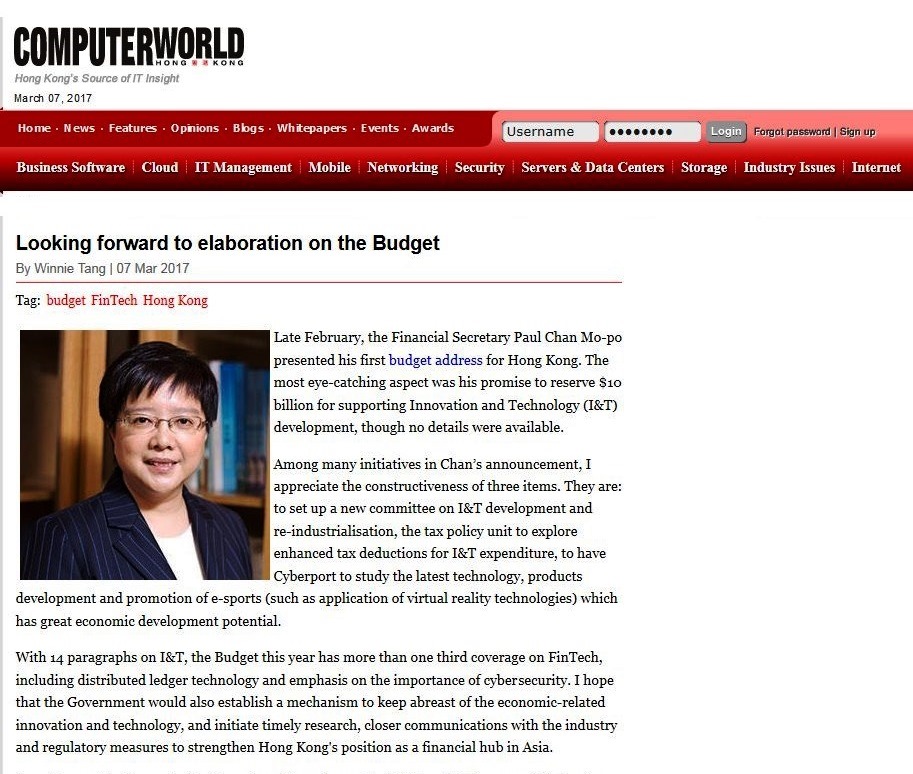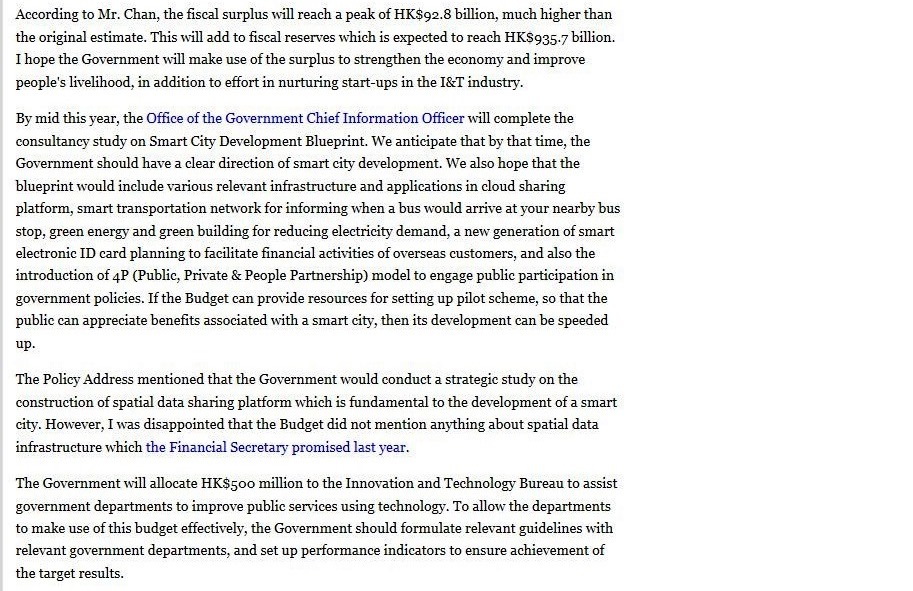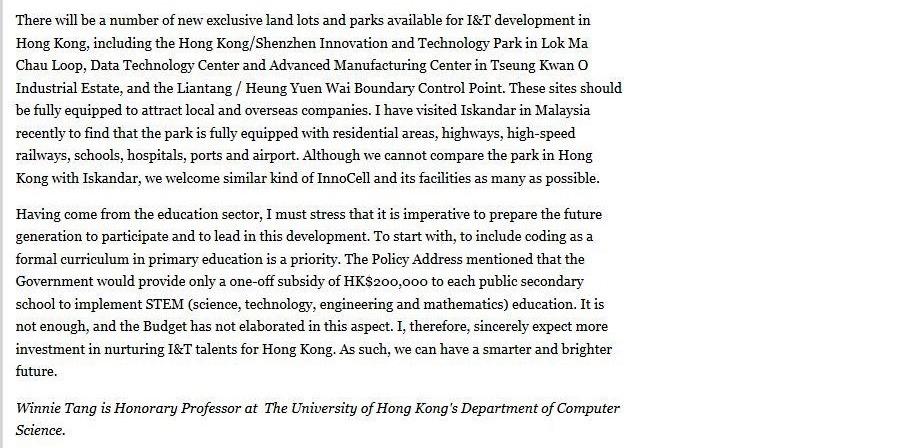網上版請按此



Looking forward to elaboration on the Budget
Late February, the Financial Secretary Paul Chan Mo-po presented his first budget address for Hong Kong. The most eye-catching aspect was his promise to reserve $10 billion for supporting Innovation and Technology (I&T) development, though no details were available.
Among many initiatives in Chan's announcement, I appreciate the constructiveness of three items. They are: to set up a new committee on I&T development and re-industrialisation, the tax policy unit to explore enhanced tax deductions for I&T expenditure, to have Cyberport to study the latest technology, products development and promotion of e-sports (such as application of virtual reality technologies) which has great economic development potential.
With 14 paragraphs on I&T, the Budget this year has more than one third coverage on FinTech, including distributed ledger technology and emphasis on the importance of cyberAnchorsecurity. I hope that the Government would also establish a mechanism to keep abreast of the economic-related innovation and technology, and initiate timely research, closer communications with the industry and regulatory measures to strengthen Hong Kong's position as a financial hub in Asia.
According to Mr. Chan, the fiscal surplus will reach a peak of HK$92.8 billion, much higher than the original estimate. This will add to fiscal reserves which is expected to reach HK$935.7 billion. I hope the Government will make use of the surplus to strengthen the economy and improve people's livelihood, in addition to effort in nurturing start-ups in the I&T industry.
By mid this year, the Office of the Government Chief Information Officer will complete the consultancy study on Smart City Development Blueprint. We anticipate that by that time, the Government should have a clear direction of smart city development. We also hope that the blueprint would include various relevant infrastructure and applications in cloud sharing platform, smart transportation network for informing when a bus would arrive at your nearby bus stop, green energy and green building for reducing electricity demand, a new generation of smart electronic ID card planning to facilitate financial activities of overseas customers, and also the introduction of 4P (Public, Private & People Partnership) model to engage public participation in government policies. If the Budget can provide resources for setting up pilot scheme, so that the public can appreciate benefits associated with a smart city, then its development can be speeded up.
The Policy Address mentioned that the Government would conduct a strategic study on the construction of spatial data sharing platform which is fundamental to the development of a smart city. However, I was disappointed that the Budget did not mention anything about spatial data infrastructure which the Financial Secretary promised last year.
The Government will allocate HK$500 million to the Innovation and Technology Bureau to assist government departments to improve public services using technology. To allow the departments to make use of this budget effectively, the Government should formulate relevant guidelines with relevant government departments, and set up performance indicators to ensure achievement of the target results.
There will be a number of new exclusive land lots and parks available for I&T development in Hong Kong, including the Hong Kong/Shenzhen Innovation and Technology Park in Lok Ma Chau Loop, Data Technology Center and Advanced Manufacturing Center in Tseung Kwan O Industrial Estate, and the Liantang / Heung Yuen Wai Boundary Control Point. These sites should be fully equipped to attract local and overseas companies. I have visited Iskandar in Malaysia recently to find that the park is fully equipped with residential areas, highways, high-speed railways, schools, hospitals, ports and airport. Although we cannot compare the park in Hong Kong with Iskandar, we welcome similar kind of InnoCell and its facilities as many as possible.
Having come from the education sector, I must stress that it is imperative to prepare the future generation to participate and to lead in this development. To start with, to include coding as a formal curriculum in primary education is a priority. The Policy Address mentioned that the Government would provide only a one-off subsidy of HK$200,000 to each public secondary school to implement STEM (science, technology, engineering and mathematics) education. It is not enough, and the Budget has not elaborated in this aspect. I, therefore, sincerely expect more investment in nurturing I&T talents for Hong Kong. As such, we can have a smarter and brighter future.
Dr. Winnie Tang
Honorary Professor, Department of Computer Science, The University of Hong Kong